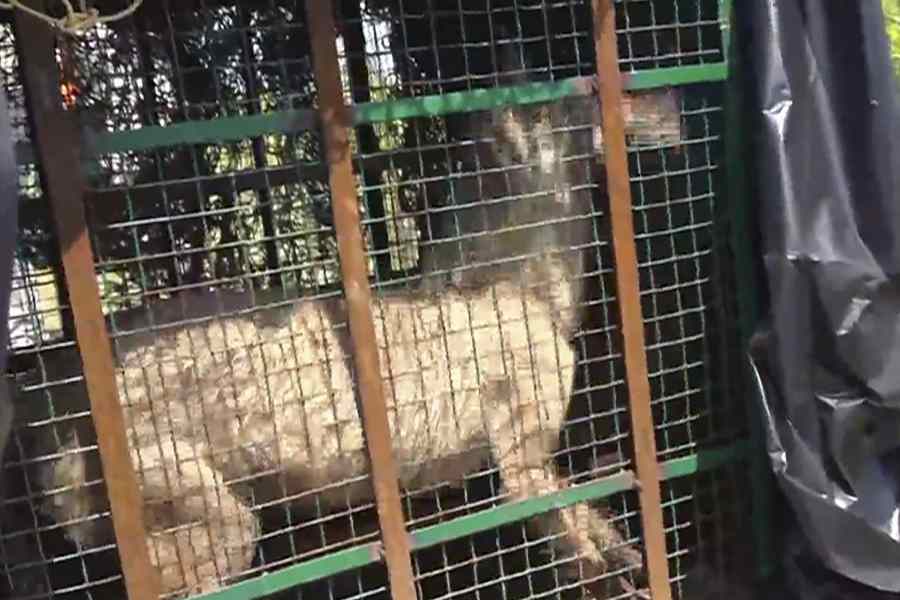In a bid to catch wolves, the forest department here has initiated an innovative effort of using colourful teddy dolls soaked in children's urine as a bait to capture them, a senior forest official said.
Over the past few months, the Bahraich region has been plagued by a series of attacks by man-eating wolves targeting the children and villagers.
The forest department now has initiated an innovative effort by using brightly coloured "teddy dolls" as a false bait to capture these predators.
These dolls have been strategically placed near the riverbanks, close to the wolves' resting places and dens, and are being soaked in children's urine to simulate the natural human scent.
"The wolves are constantly changing their locations. Typically, they hunt at night and return to their dens by morning. Our strategy is to mislead them and lure them away from residential areas towards traps or cages placed near their dens," Divisional Forest Officer Ajit Pratap Singh told PTI.
"We are tracking them using thermal drones and then attempting to drive them towards deserted areas near the traps by setting off firecrackers and making noise. Since these animals have primarily been targeting children, we have introduced large teddy dolls dressed in colourful clothes, soaked in children's urine, to create a false sense of human presence near the traps. The natural human scent may attract the wolves closer to the traps," the officer added.
Senior IFS officer Ramesh Kumar Pandey, who has extensive experience working in the Terai forests and is currently serving as the Inspector General of Forests in the Ministry of Environment, said that wolves, jackals, foxes, coyotes and both domestic and wild dogs belong to the canid species.
He explained that historically, the British had attempted to eliminate wolves from this area, even offering rewards for killing them. However, despite these efforts, the wolves managed to survive and continue to inhabit the riverbank areas.
Pandey further explained that various types of bait are used to capture animals, including live bait, dead bait and false or masked bait.
The teddy dolls being used by the forest department can be considered a form of false bait, similar to how scarecrows are used in fields to protect crops from birds, he said.
Though there is no proven record of such methods being successful, Pandey believes that innovative efforts should be encouraged, as they offer a potential solution to the human-wildlife conflict.
In recent months, a pack of wolves in the Mahsi Tehsil of Bahraich has become increasingly aggressive, with attacks intensifying since July.
According to official sources, the pack of six wolves has allegedly killed six children and one woman since July 17, while injuring numerous villagers.
Four of the six wolves have been captured, but two remain at large, continuing to pose a threat in the area.
The forest department is actively searching for these wolves using both thermal and regular drones.
Except for the headline, this story has not been edited by The Telegraph Online staff and has been published from a syndicated feed.











